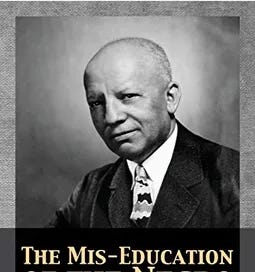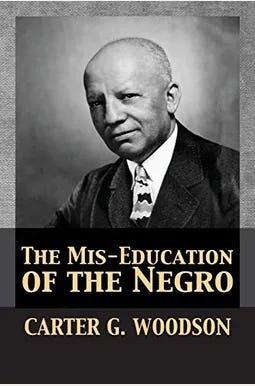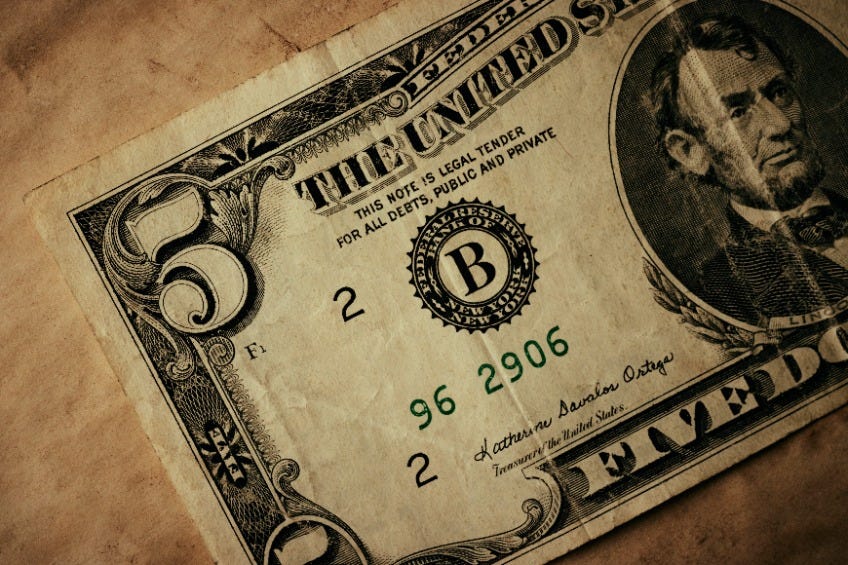Today In Black History
Dr. Carter G. Woodson, the "Father" of Black History Month
Issue #484 Today In Black History, Thursday, February 1, 2024
Today’s Black History WOW!
Dr. Carter Godwin Woodson, often referred to as the "Father" of Black History Month, was born on December 19, 1875, in New Canton, Virginia. The son of illiterate former slaves, he worked in the coal mines of West Virginia to help support his family’s income. As a teen, he was largely self-taught and had mastered common school subjects by the age of 17. Woodson finally entered high school at the age of 20 and completed his diploma in less than two years.
Woodson went on to obtain a bachelor's degree from Berea College in Kentucky and a master's degree in history from the University of Chicago. In 1912, he became only the second African American to earn a doctorate from Harvard University (after Dr. W.E.B. DuBois), focusing his research on African American history and the importance of acknowledging the contributions of Black people to American society. As a graduate student, Dr. Woodson became a member of the Omega Psi Phi Fraternity, a Black Greek Letter Organization (BGLO).
Throughout his career, Dr. Woodson dedicated himself to education and historical research. After being barred from attending American Historical Association conferences despite being a dues-paying member, Dr. Woodson believed that the white-dominated historical profession had little interest in Black history.
So in 1915, Dr. Woodson founded the Association for the Study of Negro Life and History (now known as the Association for the Study of African American Life and History), an organization dedicated to promoting the study of African American history and culture. Through this organization, Dr. Woodson published the Journal of Negro History, providing a platform for scholars to share groundbreaking research on African American history.
Realizing the importance of creating awareness and recognition of African American contributions, in 1926, Dr. Woodson initiated "Negro History Week," which served as the precursor to Black History Month. This annual event aimed to highlight the achievements of African Americans and combat the prevailing racist narratives that were prevalent at the time. Dr. Woodson chose the second week of February to commemorate the birthdays of Abraham Lincoln and Frederick Douglass, two prominent figures in the fight against slavery and for African American rights.
In the late 1960s, Black students at several colleges led the movement to expand Negro History Week to Black History Month, and President Gerald Ford officially recognized Black History Month in 1976, calling upon the public to “seize the opportunity to honor the too-often neglected accomplishments of Black Americans in every area of endeavor throughout our history.”
Early in his administration, Donald Trump, who thinks everything should only be about his ideas, tried to change the name “Black History Month” to “African American History Month.” He failed because he didn’t realize that the African Diaspora is all over the globe, African History is also Black History, and Black History Month is now celebrated in many countries with sizable Black populations.
Throughout his life, Dr. Woodson published many books on Black history, including the A Century of Negro Migration (1918), The Education of the Negro Prior to 1861 (1919), The History of the Negro Church (1921), The Negro in Our History (1922), and the seminal The Mis-Education of the Negro (1933).
Although Black History and the accomplishments of Black people should be acknowledged and taught year-round, Black History Month is intended to particularly focus on and teach ourselves and others during February.
A reminder that “they didn’t give us the shortest month of the year,” Dr. Carter G. Woodson chose the 2nd week of February for the celebrations, and so it was expanded by Black people to encompass the entire month.
Dr. Carter Godwin Woodson died from a heart attack at the age of 74 in 1950.
Today In Black History
- In 1810, the 1st insurance company managed by African Americans, the African Insurance Company was founded in Philadelphia.
- In 1861, Texas seceded from the Union.
- In 1865, Black attorney John Sweat Rock became the first African American to practice before the U.S. Supreme Court.
- In 1870, Jonathan Jasper Wright became the first African American to hold a major judicial position when he was elected to the South Carolina Supreme Court.
- In 1871, Jefferson Franklin Long of Georgia became the first Black Congressman to speak in the U.S. House of Representatives, opposing leniency to former Confederates.
- In 1948, the South African anti-apartheid novel, “Cry the Beloved Country” by Alan Paton was published in the United States.
- In 1957, P.H. Young became the 1st Black pilot on a scheduled U.S. passenger airline.
- In 1960, four African American students staged a sit-in at the Woolworth lunch counter in Greensboro, North Carolina.
- In 1965, Rev. Dr. Martin Luther King, Jr. and 700 demonstrators were arrested in Selma, Alabama.
- In 1978, the United States Postal Service issued the first stamp of its Black Heritage USA series by honoring Harriet Tubman.
- In 1990, anti-lynching activist and recorder Ida B. Wells-Barnett was commemorated with a postage stamp.
- In 1991, South African President F.W. de Klerk announced that he would repeal all apartheid laws.
- In 1998, Lillian E. Fishburne became the first female African American to be promoted to Rear Admiral.
- The “Comments” feature has been disabled. Instead, let’s discuss these facts in our community on Substack Notes. You can also read other Substack publications without subscribing to them when you join Notes.
This post is free to read/listen to for three days after publication. To have 365 24/7 access to all our posts and podcast episodes and financially support “We Are Speaking” for no more than $5 per month, please subscribe at the paid level. You will receive a 7-day FREE trial!
Are you an independent author or creative professional looking for a place where you can tackle those branding and marketing challenges and learn with me through valuable books and online courses? The Global Creative Community Branding and Marketing Academy (GCC BMA) is for you!








